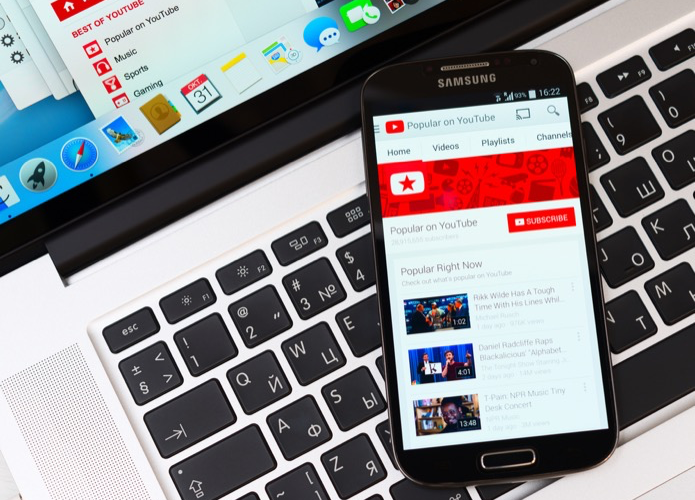
Today YouTube is synonymous with not just gaming, but digital consumption overall. Brands spend millions to peddle their wares on the site. Some of today’s actors and actresses that grace our screens had their humble beginnings asking you to smash that like and subscribe button for their semi-famous YouTube channels. To really appreciate the stature of YouTube in gaming today, you have to understand its history.
The platform was released in 2005 by three employees of PayPal. Almost a year later Google bought the company out and with the tech heavyweight’s resources behind them, the platform was destined to soar.
In the 14 years of its existence (It cannot be overstated how ridiculous it is that YouTube is not even 15 years old with how much it’s achieved) the platform has birthed an entire industry. The rise of content creators on the platform was meteoric and has absolutely shifted almost every other industry in the world.
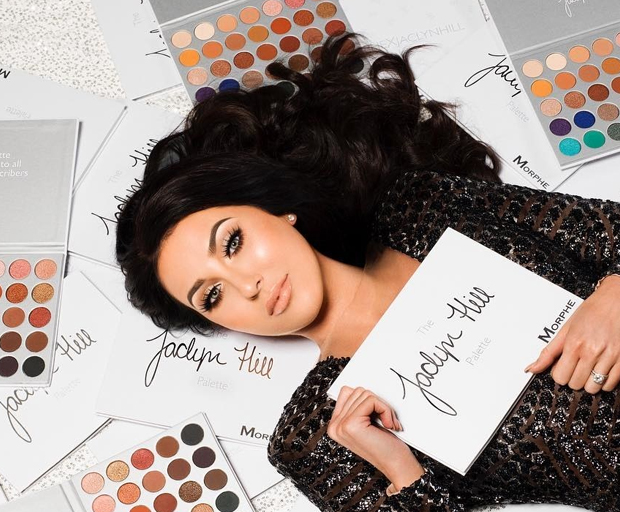
Beauty bloggers dictate the trends in the makeup world. Tech bloggers give you a more intimate and easily digestible review on the latest gadgets. Special effects experts reveal the hidden layers behind your favourite films. Every industry has had to shift to accommodate the growing power of content creators on Youtube.
YouTube itself wasn’t prepared to handle the magnitude of its content creators until it relaunched its partner program. The initial Partners Program which launched in two years after its inception was woefully ill-equipped to handle the level of fame attached to its modern creators.
When it relaunched the program a little over a year ago, there was controversy around it. The arguments around it have been discussed at great lengths which are not relevant to this article, but understanding why YouTube revised the partner program is important. The platform had been facing a string of media backlash and criticism due to the actions of its top creators and the platform felt the need to take back control.
In addition, the pressure from advertisers who were seeing their ads being put next to unsavoury videos that clashed with their brand ethos, was weighing heavily on the platform and also led to the drastic changes made.
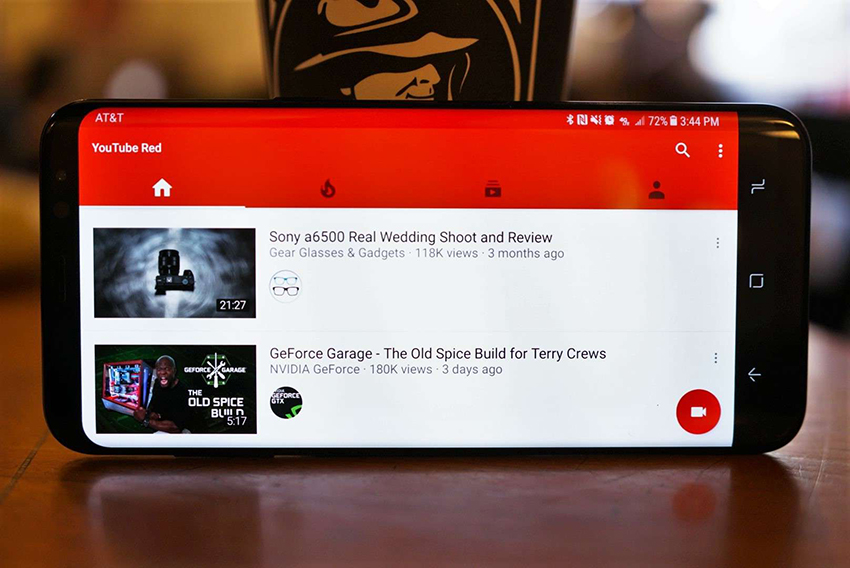
A platform that grew too quickly – YouTube vs Creators
The last two years have been particularly turbulent in the world of YouTube. The updated partner program made smaller channels feel alienated from the general YouTube community. The platform’s inconsistency with how it dealt with controversies surrounding its biggest stars was also not taken kindly.
Media publications have hit out at YouTube constantly for seeming to favour its cash cows and half-heartedly trying to slap wrists without affecting its revenue streams. In addition to that, even heavyweight creators have hit back at YouTube when various channels are seemingly shutdown with no proper explanation.
The lack of transparency on the part of YouTube has led to a strained relationship with its community and creators. It’s not uncommon to see tweets from creators who have lost their channels or monetisation due to how YouTube regulates its platform and seeing the community rally behind the YouTuber and demand that the platform reverse its decision.
Despite the platform talking a big talk around regulation, the process around how it’s done seems to indicate that YouTube has no idea what it’s doing or that it just doesn’t care. The automated strike program is one of the biggest offenders and has been abused since its inception with YouTube seemingly doing nothing to fix it or curb the abuse.

More recently, there was the BuzzFeed article on Soph, “YouTube’s Newest Far-Right, Foul-Mouthed, Red-Pilling Star” as they so aptly put it. The 14-year-old girl amassed almost a million followers with video content that mocked Islam and had her saying phrases such as “kill yourself, faggot”, amongst other explicit and largely offensive content.
YouTube’s prominent role in gaming culture
The impact that YouTube has had in the world of gaming is significant and has had far-reaching consequences. From the Let’s Plays, where YouTubers play newly released games for the first time and capture their experience to streaming on YouTube as the platform seeks to challenge Twitch.
The rise of YouTube has led to a clash between YouTubers and gaming media. The rise of Let’s Plays has led to many calling traditional game reviews outdated and no longer relevant. It’s easy to see why. People can more easily digest watching someone play and seeing the gameplay themselves rather than reading a text-heavy review that won’t as effortlessly illustrate the experience of playing the game.
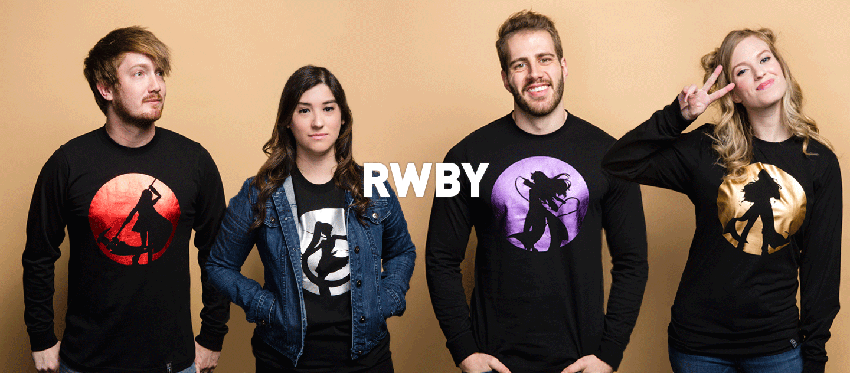
Gaming YouTube evolved to become more than just highlight reels and Let’s Plays. They began covering gaming news and sharing their opinions on it, something gaming media used to exclusively supply. Extensive analysis videos to help players min-max loadouts used to be something gamers would turn to traditional gaming media for but with the abundance of knowledge on YouTube, that is no longer the case.
It’s not just in gaming that video is king, it is something seen across most media industries and many are racing to keep up. BuzzFeed is perhaps one of the most notable publications to adopt to video trends so well and many have followed its lead.
Gaming media’s similar attempt to adopt video content has not been without its pitfalls. Gaming journalists doing Let’s Plays have led to them failing on screen and their viewers ruthlessly attacking their credentials as a result.
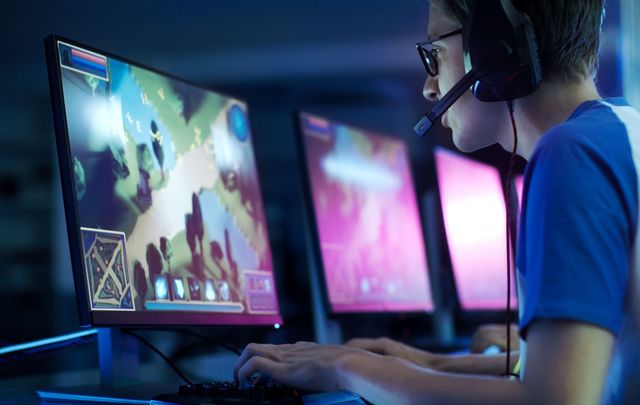
Game publishers and distributors have looked to give their products to YouTubers to review, sometimes at the expense of gaming media, for various reasons. Many will tell you it’s because YouTubers make better content that showcases their games better, but the cynics in gaming media will suggest it’s because they know that YouTubers are less likely to bite the hands that feed them and so will seldom criticise a game.
The lack of transparency from YouTubers revealing what is sponsored content and what is not has been a sore point that many in gaming media have pointed out, but this has fallen on deaf ears. The gaming community loves its YouTube content and anyone seen attacking it is liable to be on the receiving end of its ire.
Others attack gaming media for being jealous of how much more YouTubers earn and that they’re having their share of the pie diminished. The community demands that gaming media adapt to the new way of working or be left behind. None of this is helped by the fact that the relationship between gaming media and the public never fully recovered from GamerGate saga.
Live or die by the views
There are arguments on both sides of this debate that have merit. On the one side, I do believe that gaming media has failed to adapt to modern digital consumption and whilst change is happening, I fear it’s not happening fast enough. Locally, you see the impact as various gaming publications either fade away from relevancy or shut down altogether.
I also think gaming media suffers from feeling elitist at times. This claim is unfairly thrown at gaming media often, but in this scenario, I think there is some truth to it. That some journalists still approach game reviews as this methodical formula without feeling or opinion is worrying.
On the other hand though, there are serious concerns that need to be raised around YouTube’s impact on gaming culture. For one, the platform has a massive influence on incredibly young minds and that responsibility cannot be taken for granted. The impact has been seen before when a school shooter referenced PewDiePie whilst gunning down people in a mosque. Was it unfair that some gaming media blamed PewDiePie himself for it? Perhaps, but it doesn’t change the fact that he had some influence in the event, voluntarily or not.

YouTubers seem to not grasp the concept that their actions and words have consequences that are far-reaching and need to be taken seriously. There is a current war between Dr. Disrespect and Kotaku because they called him out on his E3 bathroom stunt. A line has been drawn in the sand since and everyone is taking sides, with Dr. Disrepect himself not holding back in his attacks on the publication. Of course, Dr. Disrespect is more of a streamer than a YouTuber but the concept remains the same and has similar patterns to the backlash PewDiePie himself faced.
It is the pull that YouTube has on such young minds that pushes gaming media to really fight back at the culture and call out the dangers. Etika is another tragic example of what happens when YouTube’s impact is left unchecked. Etika was a prominent gaming YouTuber who was predominantly known for his coverage on Nintendo. He lost his YouTube channel after it was closed down for violating the platform’s policies when he uploaded pornography to his account.
Since that incident, Etika would often talk about suicide or go missing at times. It was clear he was suffering mentally and nothing was done about it until finally he uploaded a goodbye video and his body was found days later in the East River. As the gaming community reels from his loss, it is also a time to think about how much YouTube culture contributed to his death. Not necessarily losing his channel but the entire culture around it.

A South African perspective on YouTube culture
I spoke to various local YouTubers on their thoughts surrounding YouTube culture and its interaction with gaming culture. I spoke to Grant Hinds, the wellk-known explosive YouTuber who always has brightly coloured hair; I also interviewed Brett “UFD Tech” Stelmaszek, South Africa’s most prominent tech YouTuber. Lastly, I spoke to Samkelo “Samplayze” Khoza, another prominent gaming YouTuber.
For all three of them, the big draw into YouTube was being able to create the content they want to and being able to provide it to their audience directly. Already, there is this understanding of accessible the platform is.
I questioned them on their views regarding whether YouTube is under-regulated or over-regulated. Samkelo felt that YouTube seems to lack leadership when it needs to step in, but other times it gets involved in something that doesn’t require it. He feels that at times they go “overkill” for the wrong issues that end up hurting everyone.

Grant feels that the platform is still trying to find its feet. An interesting point he makes as well is that “the cues that Google should be taking should not come from creators or advertisers, but rather by some sort of ethics professionals” which is a viewpoint that is not often discussed.
Brett had a similarly balanced take on the matter, saying that for the most part YouTube has done okay. He raises the point that they have “400+ hours of content that was coming into the site” every minute and somehow have to curate that to give their users the best possible experience.
What was an interesting viewpoint is that when I asked them what their biggest frustrations were with the video platform, they felt there wn’t any major concerns which is interesting when you consider how the platform is often discussed online.
Lastly, we discussed the net impact of YouTube on gaming culture. All three agreed that overall the game was really positive. There are negatives of course that can be attributed to YouTube and the change it has brought about but overall it’s been positive. Samkelo talks about how YouTube has created a platform for gamers to do something positive in the community and has given them a lot of success. He also explains how everyone in the gaming scene has to pay attention to where YouTube culture is with regards to gaming and that keeps everyone on their toes.

Grant’s viewpoints seem to agree with Samkelo’s viewpoint in that YouTube culture has allowed more content creators to be able to share their views and create interesting opinions that can feed different parts of the community.
It was also interesting listening to Brett’s viewpoint as someone that is not directly involved in the gaming scene, which was a large reason why I approached him on the topic. He explains that “having the freedom to produce whatever you want can lead to poor communities & toxic environments, but that’s the cost of being human, not the cost of the platform.” which is a really interesting way to look at it.
He also reiterates a point he made previously that YouTube has worked hard to curate content for their users and so toxic content or drama is often kept hidden, at least in his experiences. Therefore the negative impact is easy to avoid.
YouTube’s impact on gaming culture – significant either way
YouTube has been a polarising discussion in the gaming world in recent times and it’s something we’re going to need to get used to as it won’t be going anywhere anytime soon. YouTube has absolutely made gaming more accessible than ever before, something the ZA YouTubers I spoke to echoed.
Personally, I also believe YouTube culture has forced gaming media to become more adaptable and listen more. Gaming media can at times talk down to their consumers and YouTube has forced them to be more intimate in how they approach their readers. Having said that, one needs to understand that gaming media sharing an opinion one doesn’t agree with isn’t talking down.
For all its positive contributions to gaming culture, and it has to be said that the positives most definitely outweigh the negatives, there are some negatives that cannot be ignored because they are too severe.
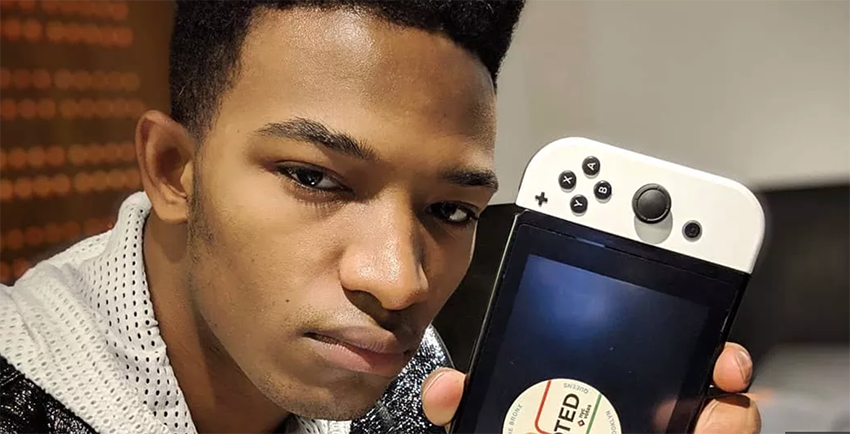
The emotional and mental cost of YouTube, especially when its pioneering community is so young, is something that needs more attention. We shouldn’t be waiting for the suicide of a prominent YouTuber before we address it.
In addition to that, the major influence that YouTube has on young kids requires that there be more ethics in the scene. There needs to be more transparency when games are gifted by publishers and/or studios, if there was a monetary transaction prior to the game etc. The community always holds gaming media to such a high standard but leaves YouTube to do as it pleases. That double standard needs to end.
YouTube has taken gaming culture to new heights and for that, it will always be celebrated, but let’s not allow the dizzying view to make us lose track of the important things.
The views and opinions expressed in this article are those of the author(s) and do not necessarily reflect the official policy or position of Critical Hit as an organisation.
Last Updated: July 6, 2019





















Original Heretic
July 4, 2019 at 13:44
Gotta ask, Glenn, how long does a piece like this take you?
And I don’t just mean the writing thereof, but the whole research process as well.
Magoo
July 4, 2019 at 14:35
I assume since before Youtube announced that they were pulling the plug on the Youtube Gaming platform due to lack of interest. xD
Alien Emperor Trevor
July 4, 2019 at 14:15
Great piece, Glenn.
YouTube is humanity in a nutshell – good, bad, useful, wasteful, insightful, stupid, and that one person who always screws it up for everyone else. And that’s before you add business, money, and fame into the mix which just makes it even messier.
They really do need to do a better job with their communication, rules, transparency, consistency, bogus copyright claims, and moderation. Creators (for want of a better term) also need to realise that YouTube doesn’t exist to serve them and give them tonnes of ad revenue for every brain fart they come up with, or forget that YouTube can be sued for two metric crap loads of money for things like your copyright violations if it looks like they’re not doing anything about it, and remember that rules do in fact apply to them as well.
Guz
July 4, 2019 at 14:15
Wow interesting read, although my coffee did get cold xD
the one thing that really stuck out for me was the ethics professionals thing,
The best solution I think is to get a panel of ethics professionals(not in anyway related to the gaming/streaming industry) and not youtube or the content creators to make the regulations.
Also don’t have them set in stone and have them reviewed once or twice year, this thing evolves so quickly and they need to be adaptable
HvR
July 5, 2019 at 14:29
The problem is who do you get; even in the field of ethics you get a wide range of viewpoints all with valid defense of their standpoints. You end up with a panel who doesn’t agree.
For example
A free speech advocate have a good point that if you start limiting expression and speech you end up with a China situation and banning certain subjects like YT prevents people from learning from real educational history channels like Time Ghost’s Great War and WW2
vs
A person who wants to limit hate speech because it breeds radicalism